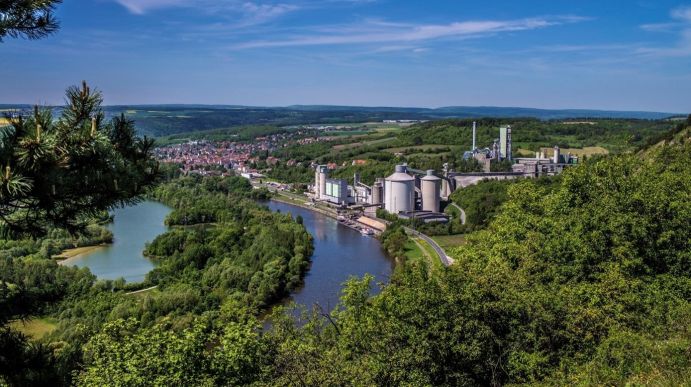K4 - Carbon dioxide reduction through low-lime clinker and carbonation hardening in concrete production
CO2-neutral concrete - that is the aim of the German cement industry by 2050: This can become reality through using recycled materials and the incorporation of CO2. The BMBF-funded K4 project is doing research on this.

Sustainable management is a principle of the cement industry. The central tasks of this energy-intensive industry are to optimise the CO2 balance and increase energy efficiency. In the cement industry, new paths must be taken to make concrete CO2-neutral. This means that the CO2 reduction strategy must combine measures in all process stages: in clinker, cement and also concrete production.
The K4 project combines the direct avoidance of process-related CO2 emissions (Carbon Direct Avoidance) in clinker production and the permanent integration of carbon dioxide in concrete through carbonation hardening. The project focuses on the development of low-calcium clinker from recycled cement paste (RCP), which has so far received little attention as a raw material for clinker production. In contrast to the limestone otherwise used, the largely CO2-free RCP avoids CO2 emissions in clinker production. The use of recycled cement paste opens up a significant CO2 reduction potential of 530 kg CO2 per tonne of clinker - this corresponds to 63 percent of the CO2 emissions released in cement clinker production. Another advantage of low-calcium clinker is its low calcium requirement. This maximises the CO2 reduction potential in cement production and conserves resources.
New process in concrete hardening - for lower CO2 emissions
In the further processing of the low-CO2 cements into sustainable concrete products, K4 aims to develop a new type of hardening process. This enables large quantities of carbon dioxide to be permanently incorporated into the finished product during concrete hardening. The goal of the new process: the annual reduction of about 1.7 million tonnes of CO2 emissions by avoiding and permanently incorporating carbon dioxide. This active reduction of CO2 emissions enables the German cement industry to remain competitive even in the face of far-reaching reductions in EU emission certificates. In this way, K4 contributes both to sustainable cement and concrete production and, on a social and economic level, directly to the preservation of Germany as a production and science location.
The Federal Ministry of Education and Research is funding K4 within the KlimPro-Industrie measure with 2.6 million euros.
Project coordination
Dr. Peter Blaum
HeidelbergCement AG
Oberklamweg 2-4, 69181 Leimen
Phone: +49 6221 481 13 674
E-Mail: Peter.Blaum@heidelbergcement.com
Dr. Martina Dietermann
Phone: +49 6221 481 13 719
E-Mail: Martina.Dietermann@heidelbergcement.com
Last updated on



